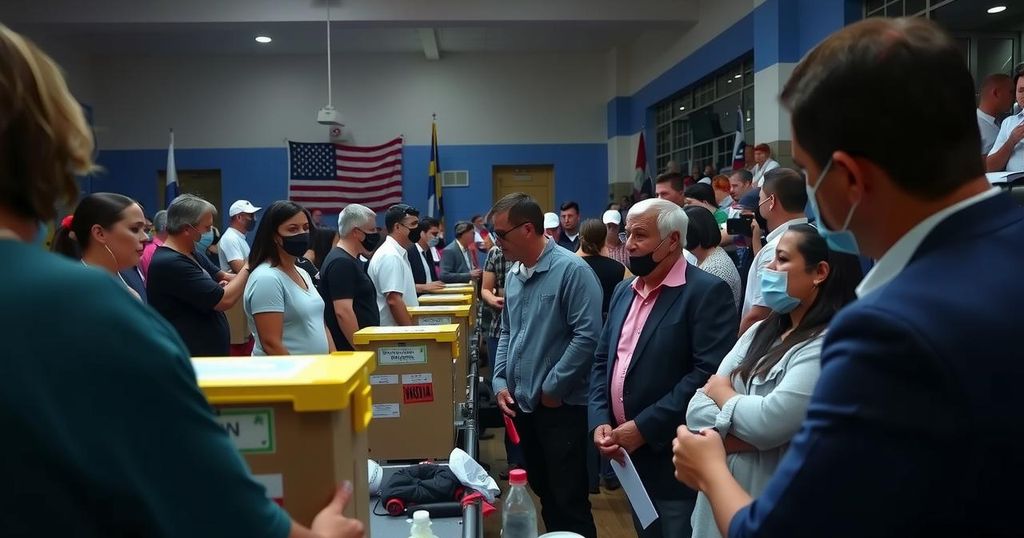World news
2024 ELECTIONS, ARGENTINA, ASIA, BRAZIL, BRICS, COLORADO PARTY, CUBA, DELGADO, ELECTION, ELECTIONS, FRENTE AMPLIO, JOSE “ PEPE, LUIS LACALLE POU, MEXICO, MUJICA, NATIONAL PARTY, NORTH AMERICA, OR, PHILIPPINES, PRESIDENTIAL ELECTION, SOUTH AMERICA, TRADE RELATIONS, URUGUAY, VENEZUELA, VOTER TURNOUT
Daniel O'Connor
0 Comments
Uruguayans Cast Votes in Crucial Presidential Run-off Election
Uruguayan voters are participating in a presidential run-off election, choosing between leftist candidate Yamandu Orsi and right-wing Alvaro Delgado. The election follows five years of conservative rule and features an extremely close race, with polls indicating a possible margin of under 25,000 votes. Both candidates aim to attract undecided voters to secure a victory in a politically moderate environment.
Voting has commenced in Uruguay’s presidential run-off election, where the leftist coalition led by former President Jose “Pepe” Mujica seeks to regain power after five years under a right-wing administration. Polling stations opened at 8 am local time and will close at 7:30 pm, with initial results anticipated shortly thereafter.
Uruguayan voters now face a choice between the leftist Frente Amplio candidate Yamandu Orsi and Alvaro Delgado from the National Party, representing the outgoing President’s centre-right coalition. The race is expected to be extremely close, with polls indicating that the candidates could be separated by less than 25,000 votes, diverging from the more polarized political landscape observed in other Latin American nations.
Despite the popularity of incumbent President Luis Lacalle Pou, satisfaction with the ruling coalition is tempered by rising crime rates, even amid progress in employment and wages. Orsi, who emphasizes a moderate leftist policy, aims to secure a commanding majority in the Senate, having already won 16 out of 30 seats. Delgado, meanwhile, leverages the popularity of the current administration as he seeks to entice undecided voters.
The political climate in Uruguay contrasts sharply with the more fractious atmospheres found in neighboring countries, as its leftist and rightist political blocs exhibit considerable overlap in their policies. The run-off electoral process follows an initial round where no candidate achieved an outright majority, leading to today’s decisive vote that carries implications not just for the coastal nation but also for broader regional political dynamics. Historically, elections in the region have been marked by swings away from incumbent parties, prompting speculation regarding potential voting patterns as citizens respond to pressing issues such as inflation and rising living costs.
The outcome of the presidential run-off in Uruguay stands to impact both domestic policy and the regional political landscape in Latin America. As voters navigate their decision, the close nature of the election underscores the significance of each faction’s strategy in courting undecided constituents. With initial sentiments indicating a desire for moderation amid turbulence, the final results may reflect a continuation of Uruguay’s distinctive political framework, characterized by less polarization than seen elsewhere in the region.
Original Source: www.aljazeera.com




Post Comment